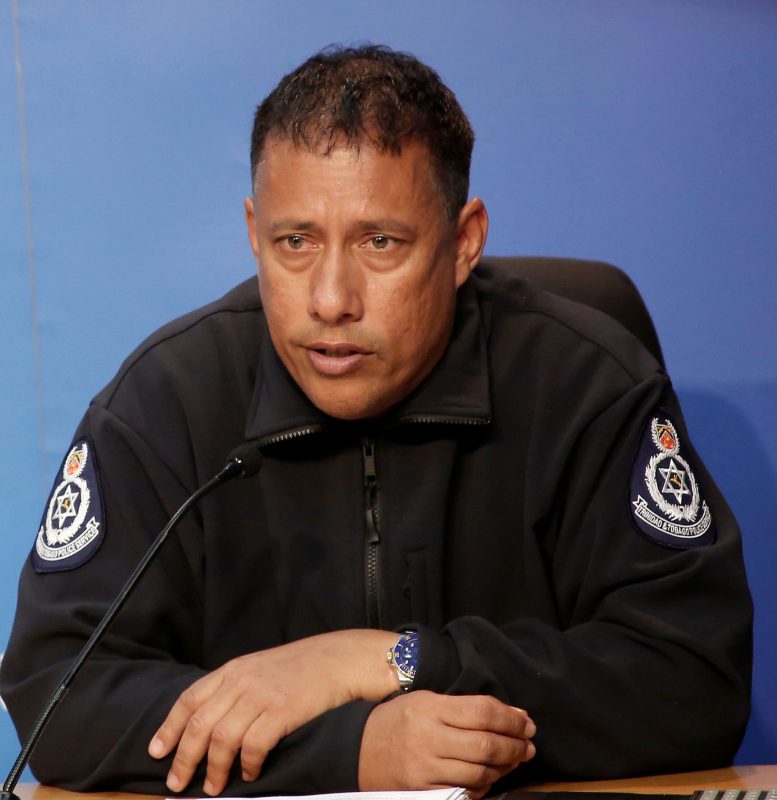(Trinidad Express) It is official.
Gary Griffith has been told by the Police Service Commission (PolSC) not to report for duty “until further notice”.
In its letter to “Mr Gary Griffith” dated September 17, the PolSC determined that it was not in the public interest or the interest of the Police Service to have Griffith on the job while retired Justice Stanley John is conducting his investigation.
John was appointed by the PolSC to investigate reports that the process for the issuance of Firearm User’s Licences, a process in which the Commission is central, has been contaminated by corrupt elements—in that applicants are being asked to pay not only for expediting licences, but in order to receive FULs.
It was on the basis of the John investigation that the Commission directed Griffith to “cease, with immediate effect, to report for duty until further notice”.
In the letter, the Commission referred to a previous letter dated September 1, 2021, in which “you (Gary Griffith) were made aware that the Commission caused an investigation into certain matters to be initiated”.
“The Commission is of the view that in the proper discharge of its duty, in the interest of the Police Service and in the public interest, you must cease, with immediate effect, to report for duty until further notice.”
“Meanwhile, the Commission is inviting you to make any representations you may wish to make as to its decision,” the letter concluded, adding: “Please be so advised.”
It was signed by Commission chairman Bliss Seepersad.
No impediment to investigation
A source said yesterday this position was adopted because the PolSC wants the investigation process to be beyond question.
The source pointed out that the Commission used the same principle followed in many agencies, including the Public Service, to ensure the investigation is not impeded.
“The Commissioner of Police has the capacity to transfer police officers, send officers on leave, among other things, and no one can interfere with that. So the only solution was to send the Commissioner on administrative leave,” the source said, adding: “It is essentially a recusal. It would have been a dereliction of duty (for the Commission) to have done otherwise, given the prevailing circumstances.”
The PolSC had held an emergency meeting on Friday to discuss the issue of the Commissioner of Police, and arrived at its decision at that meeting.
The day before, the National Security Council and the Cabinet had held emergency meetings on the same issue and had decided to urge the PolSC to send Griffith on leave, pending the outcome of the investigations by the PolSC, the Police Complaints Authority and the Trinidad and Tobago Police Service, into possible corruption surrounding the issuance of Firearm User’s Licences.
Deosaran: Standard
industrial relations practice
Former PolSC chairman, professor and former chairman of the Police Manpower Audit Committee, Ramesh Deosaran, said yesterday it was “standard industrial relations practice” to have a person step aside if an investigation involves them in any way, and “moreso, in bodies such as the one we are dealing with”.
“Everybody involved, left, right and centre, should understand the industrial relations practice. If there is an enquiry as serious as this one, there should be room left in the middle for the investigation to take place properly, whether it is by the Police Complaints Authority or the Professional Standards Bureau,” he stated.
However, Deosaran bemoaned the fact that there was confusion in the public mind in an area and a position for which there should be “top level clarity, certainty and direction”—that is, the appointment of a Police Commissioner.
“The public is taken for a merry-go-round ride at every corner. And I think the Police Service Commission itself has to reflect, review and tidy up the situation by first reconsidering why I gave a person who has just completed a three-year contract an ‘acting’ arrangement, especially when that person was a contestant among others, for the permanent post.
“A tidier arrangement would have been to have someone else, someone qualified to act, in the interim. By implication you were giving this person (Griffith) an advantage over the others by allowing him to continue in the position over an extended (indefinite) period of time.
“That was the first misjudgement,” Deosaran added.
“And this has put a lot of people in the middle of confusion through no fault of their own. You couldn’t blame Gary Griffith for trying to hold on to his position in this scenario because he was put within a tangled web,” he said.
Too much confusion
Deosaran said investigations of this kind—issuance of gun licences—are very serious.
“And the enquiry, of course, must include the person who signs off on the gun licence. That particular person, whoever he or she might be, should not be in the middle of the enquiry (investigation), and should be gently put aside. That is the normal procedure,” he said.
“But, it is how the whole thing was done,” Deosaran said. “I think the Police Complaints Authority is a little too slow in intervening. And the Prime Minister, who has to go to Parliament and defend his decisions on the Police Commissioners’ appointment, he might be anxious to get information.
“So, it comes back to the constitutional bodies—the Police Complaints Authority and the Police Service Commission—taking a little too long to initiate the proper investigations. And the Prime Minister should not be left empty-handed while these things are going on.”
He said clarity, certainty and positive direction should be brought to all the issues, including the legitimacy of the enquiry he (the Prime Minister) initiated through the National Security Council.
He said the court case involving Anand Ramesar may help to resolve some of these matters.
Ramesar, a former head of the Police Service Social and Welfare Association, filed a lawsuit against the PolSC over its handling of the selection of the next Police Commissioner.
